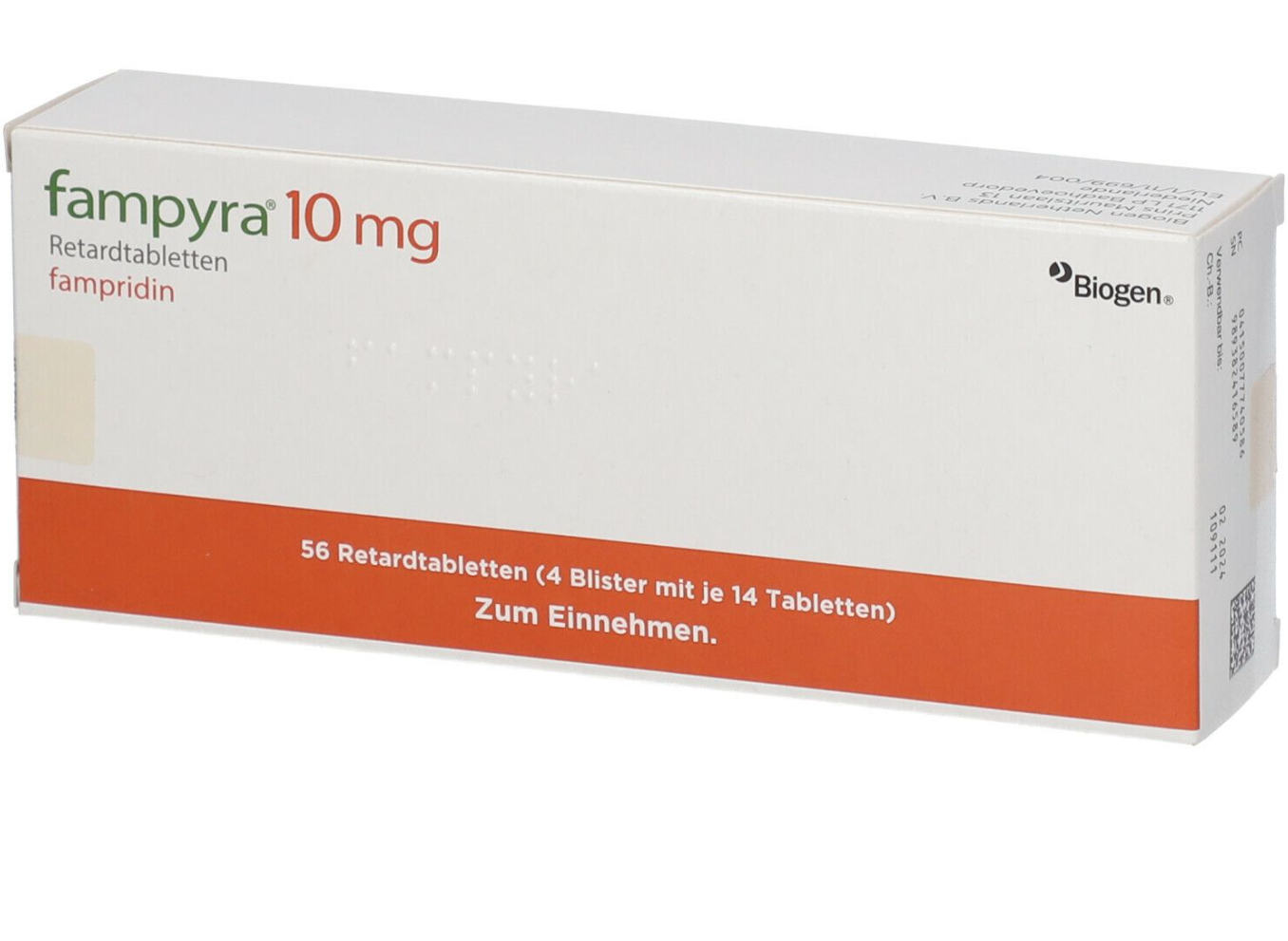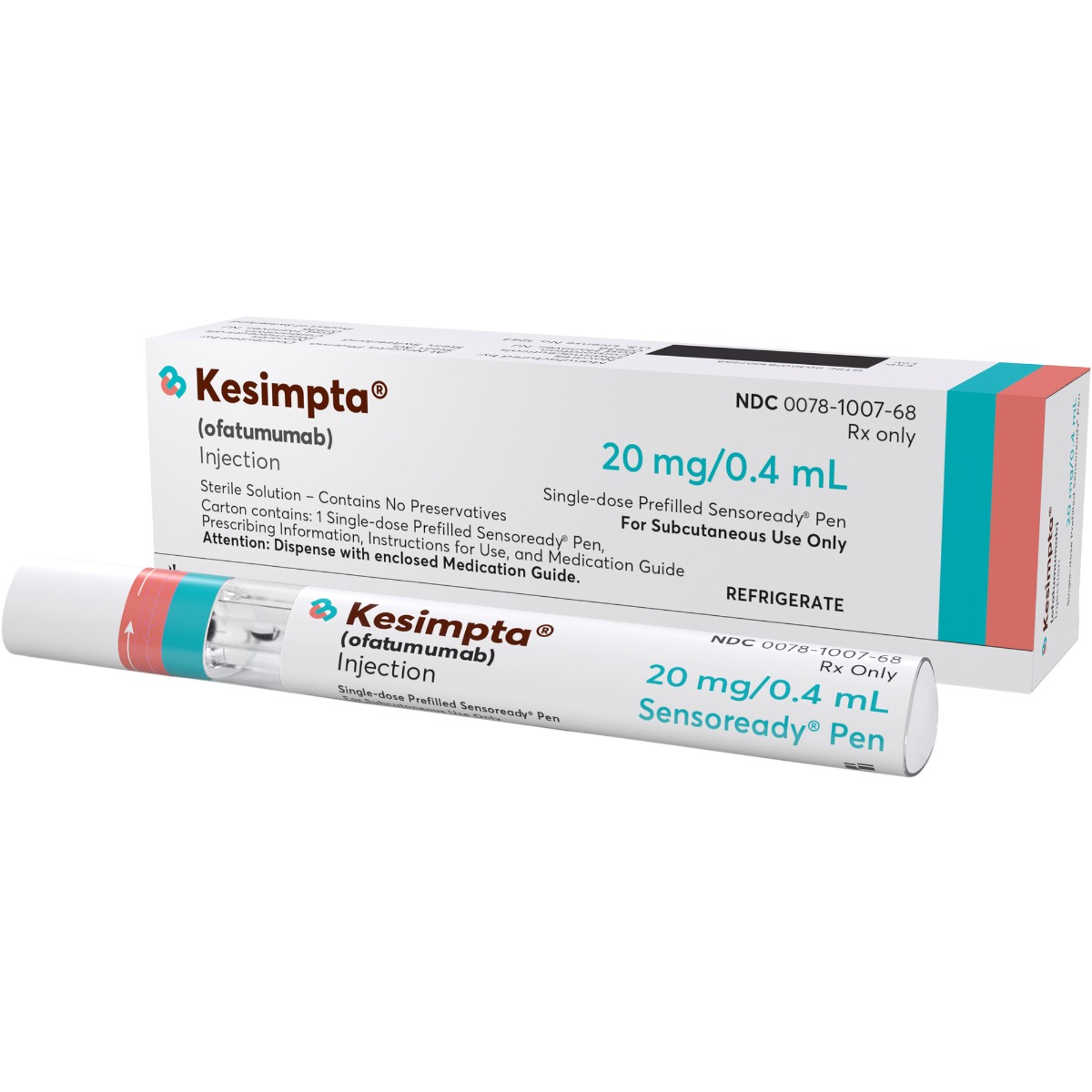Fampyra (fampridine) vs Kesimpta (ofatumumab)
Fampyra (fampridine) vs Kesimpta (ofatumumab)
Fampyra (fampridine) is a potassium channel blocker designed to improve walking in patients with multiple sclerosis (MS) by increasing nerve signal conduction. Kesimpta (ofatumumab) is a CD20-directed cytolytic monoclonal antibody indicated for the treatment of relapsing forms of multiple sclerosis, including clinically isolated syndrome, relapsing-remitting disease, and active secondary progressive disease, with its action aimed at reducing the number of B cells, which are thought to play a key role in the abnormal immune response in MS. When deciding between the two, it is important to consider that Fampyra is specifically used to improve a symptomatic aspect of MS (mobility), while Kesimpta is used to modify the course of the disease by targeting the underlying immune mechanisms.
Difference between Fampyra and Kesimpta
| Metric | Fampyra (fampridine) | Kesimpta (ofatumumab) |
|---|---|---|
| Generic name | Fampridine | Ofatumumab |
| Indications | Improvement of walking in patients with multiple sclerosis (MS) | Relapsing forms of multiple sclerosis (MS), including clinically isolated syndrome, relapsing-remitting disease, and active secondary progressive disease |
| Mechanism of action | Potassium channel blocker | CD20-directed cytolytic antibody |
| Brand names | Fampyra | Kesimpta |
| Administrative route | Oral | Subcutaneous injection |
| Side effects | Urinary tract infection, insomnia, dizziness, headache, nausea, weakness, back pain | Upper respiratory tract infections, headache, injection-related reactions, local injection site reactions |
| Contraindications | History of seizures, moderate to severe renal impairment | Active hepatitis B infection, live vaccines |
| Drug class | Potassium channel blocker | Monoclonal antibody |
| Manufacturer | Biogen | Novartis |
Efficacy
Fampyra (Fampridine) Efficacy in Multiple Sclerosis
Fampyra, known generically as fampridine, is a medication approved for use in improving walking in patients with Multiple Sclerosis (MS). This drug is a potassium channel blocker that works by enhancing the conduction of signals in nerves that have been damaged by MS. Clinical trials have demonstrated that fampridine can increase walking speed in some individuals with MS. The efficacy of Fampyra was particularly noted in the MS-F203 and MS-F204 phase III clinical trials, where a consistent improvement in walking speed was observed in a subset of patients. It is important to note that not all patients with MS respond to Fampyra, and its efficacy is usually assessed through a walking test over a short trial period to determine individual responsiveness.
Kesimpta (Ofatumumab) Efficacy in Relapsing Forms of Multiple Sclerosis
Kesimpta, with the active ingredient ofatumumab, is a monoclonal antibody that targets CD20, a protein found on the surface of B cells, which are a type of immune cell implicated in the pathogenesis of MS. Ofatumumab has been shown to be effective in reducing the annual relapse rate in patients with relapsing forms of Multiple Sclerosis. The ASCLEPIOS I and II phase III clinical trials have provided strong evidence for the efficacy of Kesimpta in reducing the frequency of relapses, slowing the progression of disability, and decreasing the number of new or enlarging brain lesions as detected by MRI compared to teriflunomide, another MS medication.
Comparative Efficacy and Considerations
While Fampyra and Kesimpta have different mechanisms of action and are used for different aspects of MS management, they both contribute to the overall treatment strategy for MS. Fampyra is primarily used for symptomatic management to improve walking, whereas Kesimpta is used to modify the disease course by reducing relapse rates and disease progression. The choice of therapy is typically based on a variety of factors, including the type of MS, the severity of symptoms, the patient's response to previous treatments, and the overall benefit-risk profile of the medication.
Conclusion
Both Fampyra and Kesimpta have been shown to be efficacious in the management of Multiple Sclerosis, albeit in different capacities. Fampyra may benefit a subset of patients with mobility issues, while Kesimpta has been proven to be effective in controlling disease activity in relapsing forms of MS. As with any medication, the decision to use Fampyra or Kesimpta should be made in consultation with a healthcare provider, taking into account the individual patient's clinical circumstances and treatment goals. Ongoing monitoring and evaluation of treatment efficacy and safety are essential components of patient care in MS.
Regulatory Agency Approvals
Fampyra
-
European Medical Agency (EMA), European Union

-
Food and Drug Administration (FDA), USA

-
Health Canada

-
Therapeutic Goods Administration (TGA), Australia

-
Medsafe (NZ)

Kesimpta
-
European Medical Agency (EMA), European Union

-
Food and Drug Administration (FDA), USA

Access Fampyra or Kesimpta today
If Fampyra or Kesimpta are not approved or available in your country (e.g. due to supply issues), you can access them via Everyone.org.
How it works

Make an enquiry
Choose the medicine you want to buy, answer a couple of questions, and upload your prescription to speed things up. We’ll get back to you within 24 hours.


Make an enquiry
Choose the medicine you want to buy, answer a couple of questions, and upload your prescription to speed things up. We’ll get back to you within 24 hours.


Breeze through the paperwork
We'll guide you through the required documents for importing unapproved medicine, ensuring you have all the necessary information.


Get a personalized quote
We’ll prepare a quote for you, including medicine costs and any shipping, administrative, or import fees that may apply.


Receive your medicine
Accept the quote and we’ll handle the rest - sourcing and safely delivering your medicine.

Some text on this page has been automatically generated. Speak to your physician before you start a new treatment or medication.
Let's talk
If you have any questions, call us or send us a message through WhatsApp or email:
Contact us




